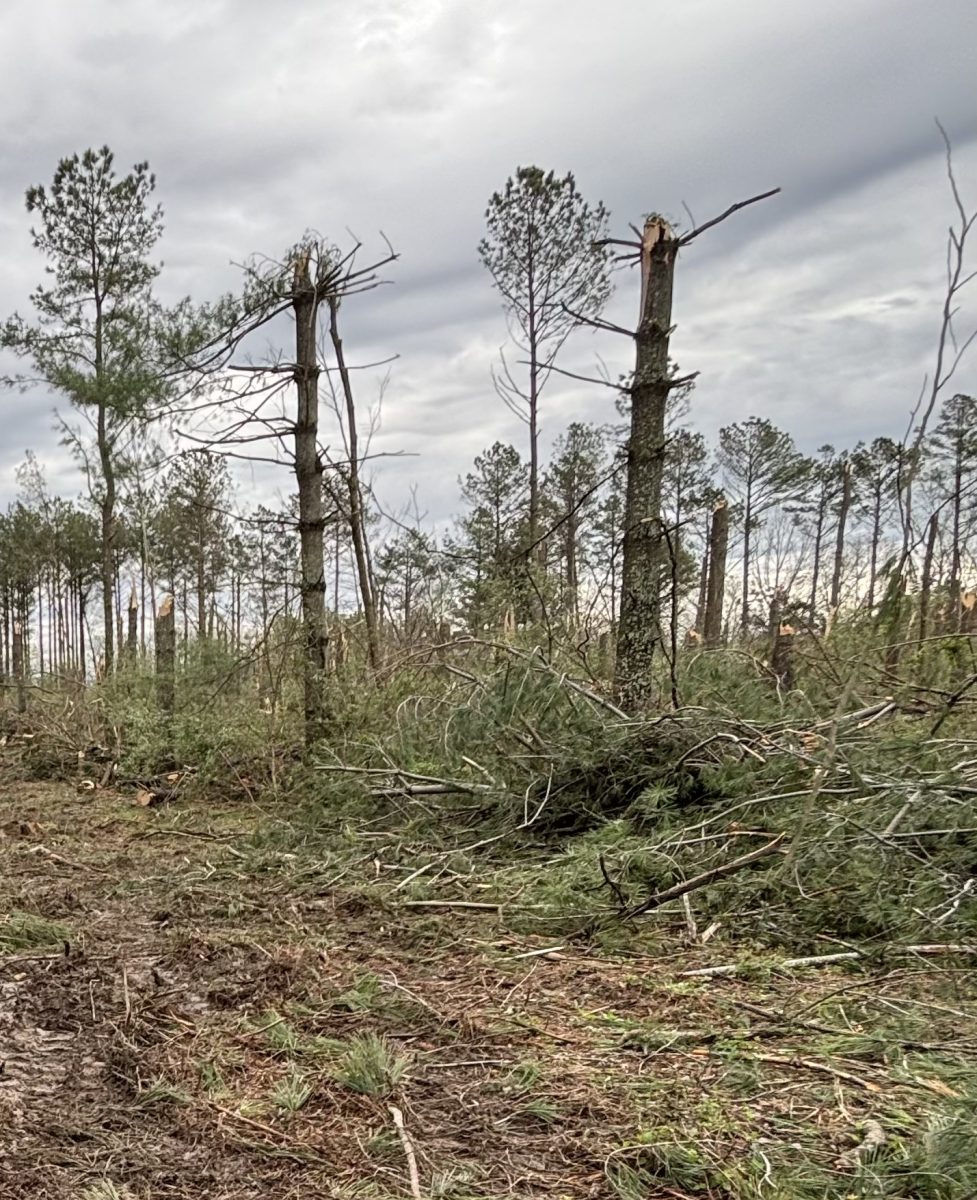Researchers aim to free up radio spectrum
October 2, 2013
The sky is cluttered with radio waves, and SIU researchers are working to clean up the mess in an ever-shrinking spectrum.
The National Science Foundation awarded the university a $896,629 grant to study radio-spectrum sharing and ways to make it more efficient to its users. Xiangwei Zhou, co-principal investigator and engineering professor, said researchers will study ways to create a better economic plan for primary and secondary use while also freeing up frequency space.
Advertisement
“Frequency resource is limited because, for a specific area, we have already allocated up spectrum band for a certain service,” Zhou said. “In a certain area we can squeeze in more services using the same frequency. Later on, the spectrum resource can almost become unlimited.”
The radio spectrum is made up of electromagnetic radio waves that operate at different frequencies. The frequency, measured in megahertz, is the rate at which a radio wave vibrates throughout space. A radio receiver can clearly pick up signals only from the frequency it is dialed into. For example, 101.5 CIL-FM operates at 101.5 megahertz per second.
Spectrum sharing would allow two stations to share the same frequency without channel interference, said Andrew Clegg, program director for the Enhancing Access to the Radio Spectrum.
“This wouldn’t work, for example, for TV stations or FM stations that are on all the time, but a lot of radio stations such as police dispatch and the like aren’t transmitting all the time,” Clegg, an NSF employee, said in an email.
The spectrum is regulated by the Federal Communications Commission for commercial and non-commercial uses, and it is issued to primary and secondary users. Clegg said an example would be the police force’s own licensed spectrum for emergency radio dispatch; only the police can use it, even if they are not using the radio to communicate. Spectrum sharing then would allow the police — the primary users — to lend part of the spectrum to a secondary user. This, Clegg said, is what is known as opportunistic use.
“The secondary user could test to see if it’s being used and they’re only supposed to use it if it’s unoccupied,” said Alison Watts, an economics professor and co-principal investigator of the research project.
Watts said frequencies are often only used 15 to 80 percent of the time, which gives secondary users an opportunity to use the spectrum during times of vacancy while also freeing up other frequencies.
Advertisement*
“That’s the goal of the project — to make sure that there’s always enough frequencies available,” Watts said. “It should increase the frequencies available and it should also make everything cheaper.”
Zhou said the FCC’s and researchers’ primary goal is to improve the spectrum’s efficiency. Researchers will explore other initiatives of spectrum usage later, he said.
“Later on, we’re going to explore the connections between economic aspects and engineering aspects,” Zhou said. “For example, if I’m sending spectrum to a specific user, the price is actually related to how you utilize the network.“
The spectrum has been used for more than a century and has a variety of everyday uses: Wi-Fi, radio, television, cellular phones, wireless Internet, GPS and public safety communications. As technology advances and wireless products become more prevalent for on-the-go users, the spectrum has lost available space and is causing several communications problems, such as channel interruption and slower connectivity.
“It’s sort of like being at a party and two people are trying to talk to you at the exact same time,” Clegg said. “Signals get mixed with each other when two users try to transmit on the same channel at the same time in the same general area. In that case, people trying to receive those transmissions get a lot of noise and interference.”
SIU’s research proposal was chosen by the National Science Foundation as one of the top 15 percent proposals submitted to the Enhancing Access to the Radio Spectrum program. Clegg said the foundation receives proposals from universities around the country, and the panels choose the proposals that they believe have the best combination of intellectual merit and broader impact.
He said lawmakers consider the radio spectrum to be a major contributor to the nation’s economy because of its wide range of uses. Congress and President Barack Obama want to make it more efficient to foster more opportunities for stakeholders, commercial broadband providers, public safety, homeland security and national defense, according to provisions in the 2010 National Broadband Plan, the 2012 Spectrum Act and the 2012 President’s Committee of Advisors on Science and Technology report.
Dylan Frost can be reached at
dfrost@dailyegyptian.com
or 536-3311 ext. 255.
Advertisement








